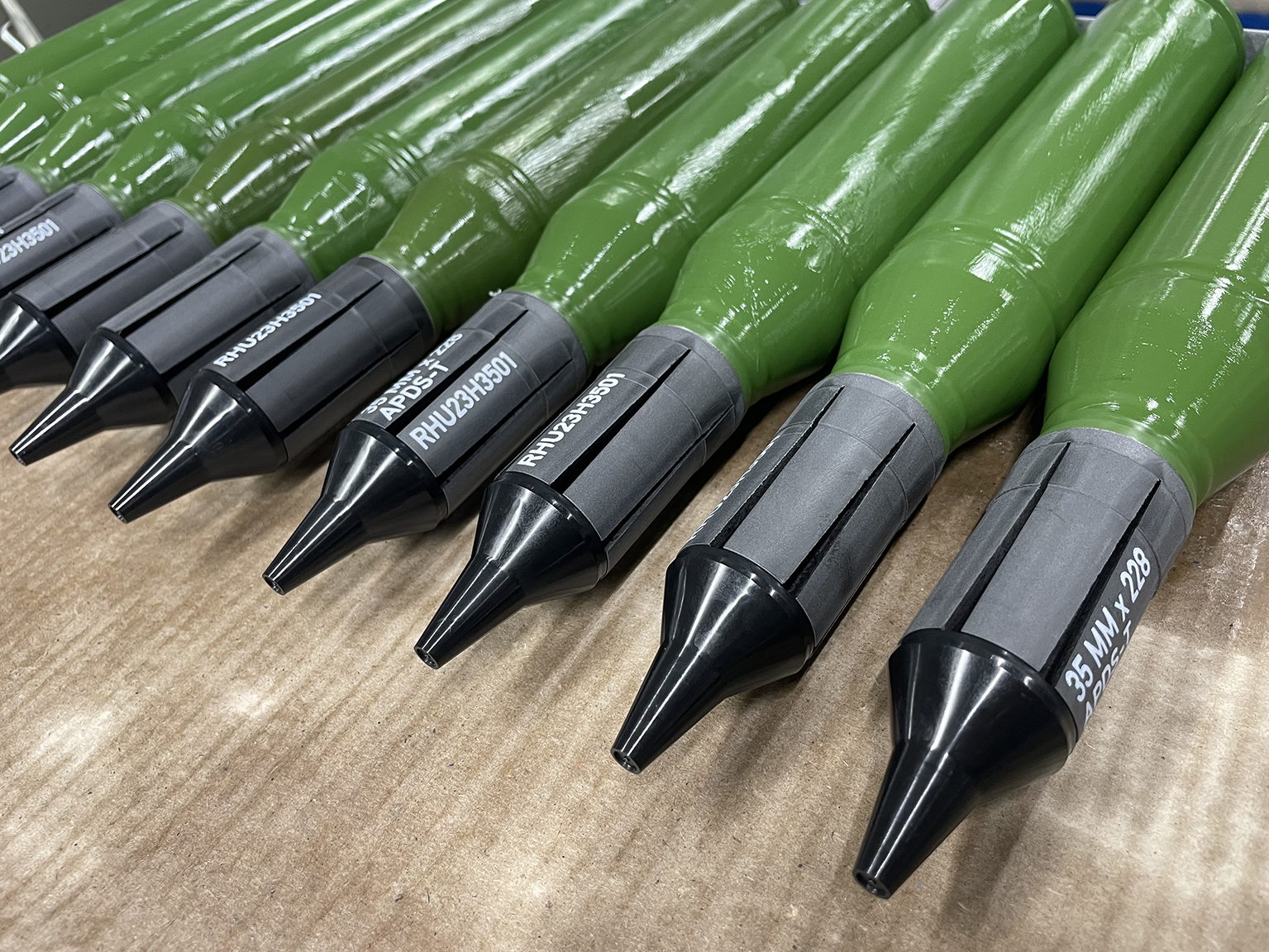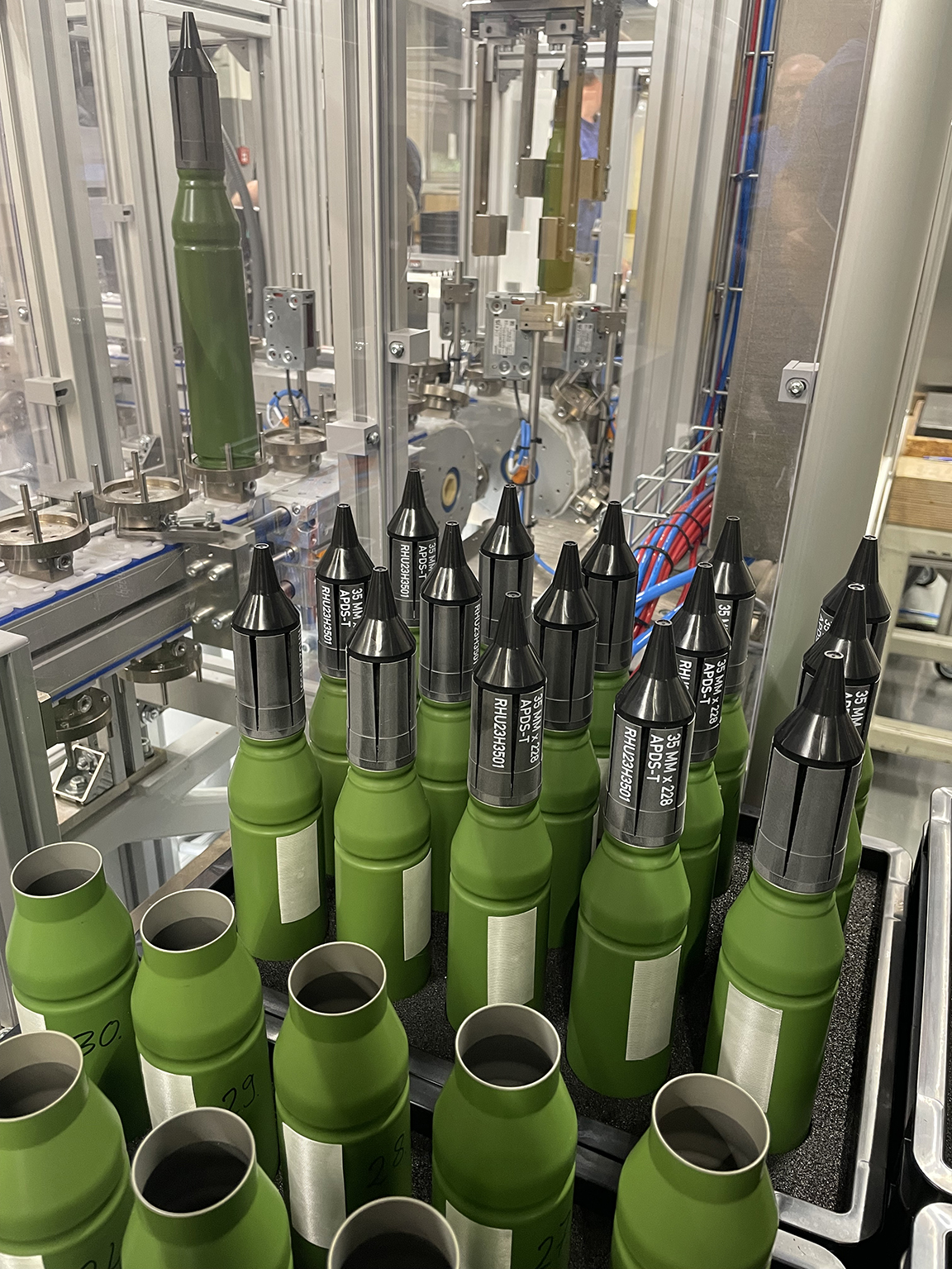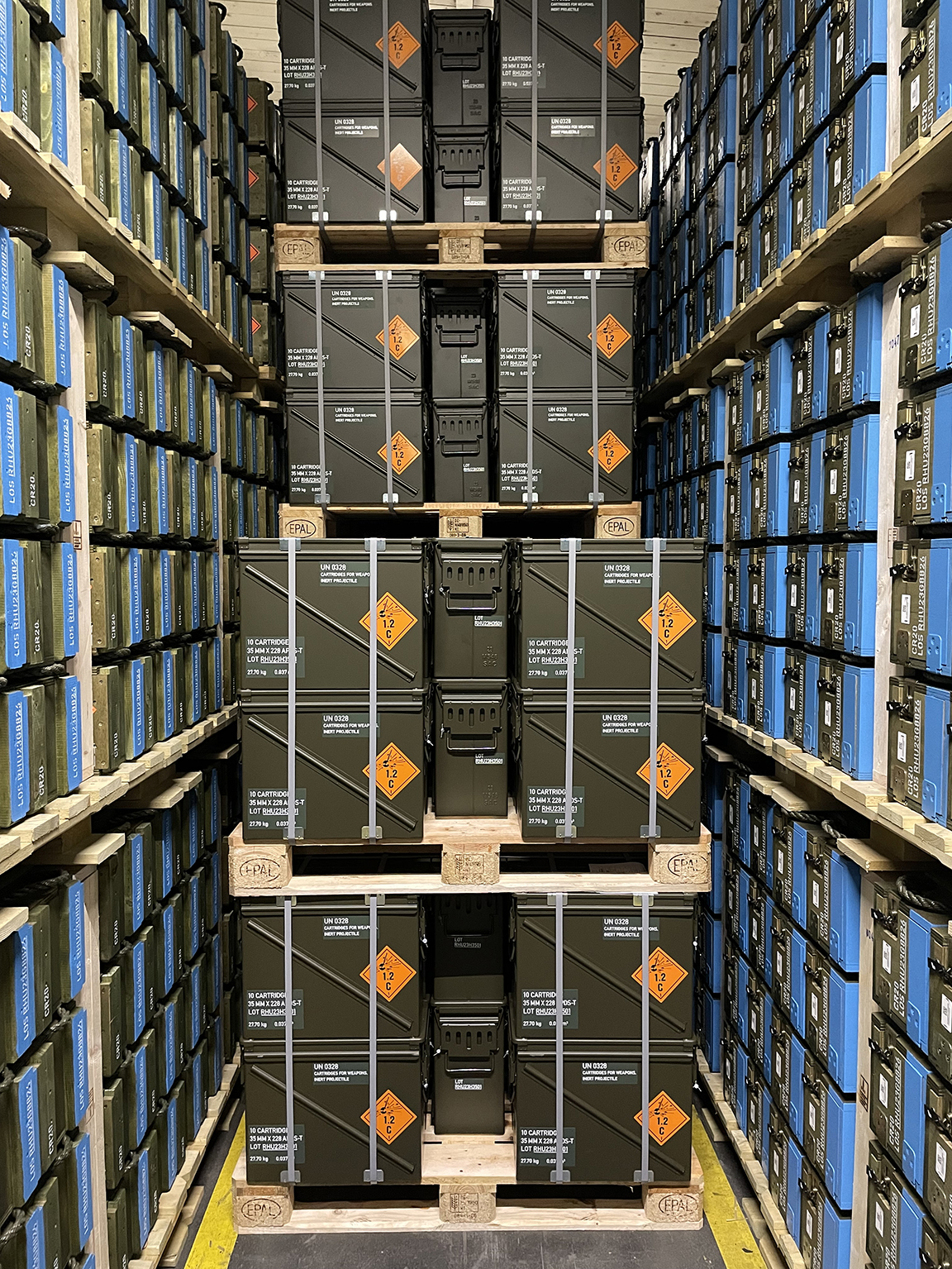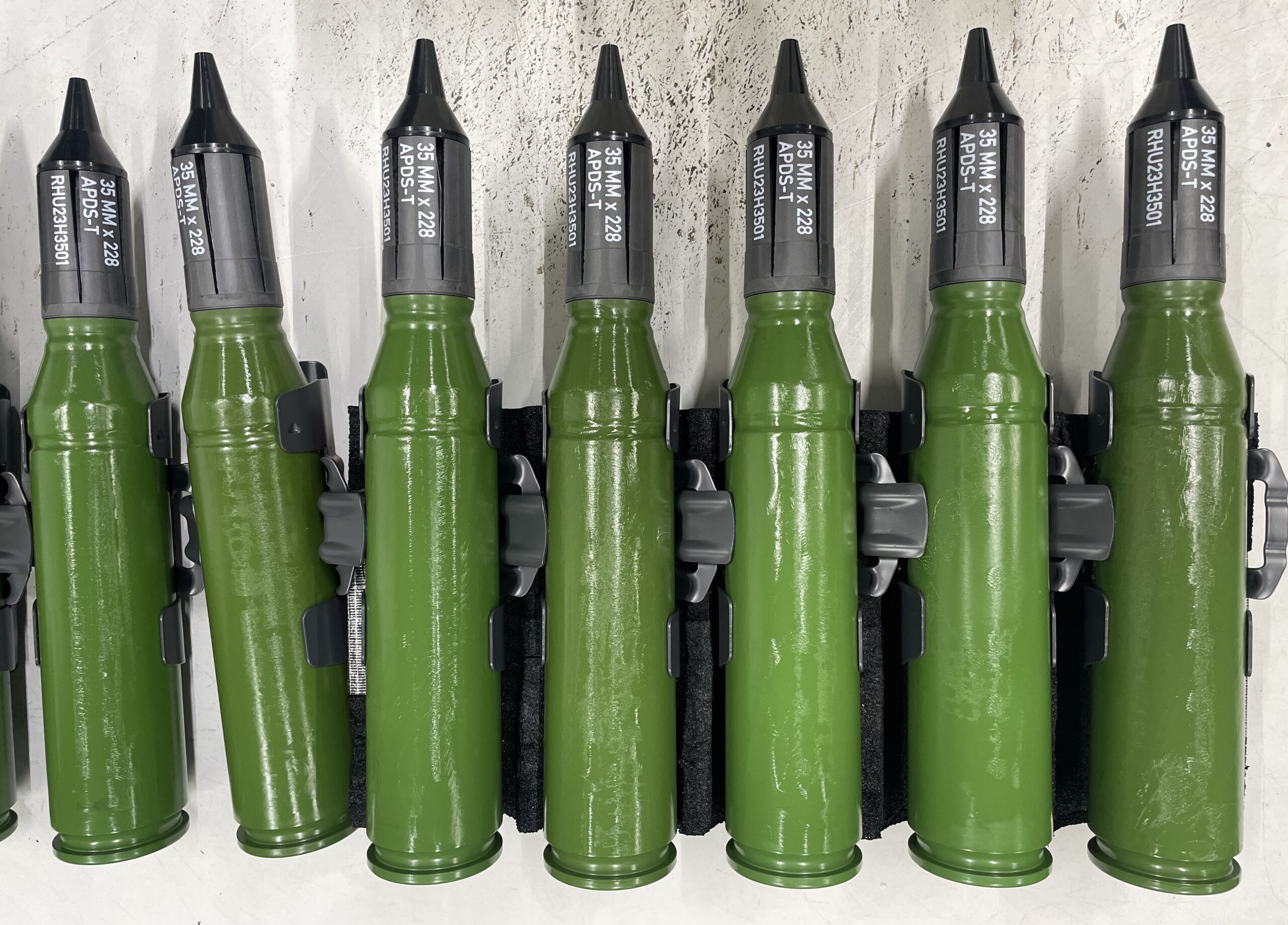Get the weekly SPARTANAT newsletter.
Your bonus: the free E-Book from SPARTANAT.

Rheinmetall has sent the first delivery of new ammunition for the Gepard anti-aircraft gun tank to Ukraine. According to the contract, the Düsseldorf-based technology group has now delivered the first batch of 35mm anti-aircraft ammunition as part of German support for Ukraine's defense fight. A total of 40,000 rounds are to be produced and provided by the end of the year.
In Ukraine, the deliveries from Germany are eagerly awaited, as the Gepard with its 35mm twin cannon is a decisive factor in the country's defense fight. The German government has provided 46 of these anti-aircraft tanks, with another six to follow. They are essential for Ukraine in the fight for air superiority over its territory. The Gepard anti-aircraft tanks have proven to be extremely efficient defense weapons against kamikaze drones used by Russia to attack Ukrainian cities. They are in constant use, hence the high demand for ammunition.

Rheinmetall has so far produced medium-caliber ammunition primarily in Switzerland, but now new manufacturing capacities have been created in Germany to supply the Gepard systems. Several million euros have been invested in the facility.
In February 2023, German Defense Minister Boris Pistorius announced at the meeting of the Ukraine Defence Contact Group in Brussels that a corresponding ammunition production at Rheinmetall in Germany was to be newly established. The contract for the short-term delivery of a total of 300,000 rounds of ammunition for the Gepard anti-aircraft tank had been signed a few days prior. The project to create the new manufacturing facility was under tremendous time pressure due to its political relevance and required a technological and logistical tour de force due to its urgency.
"We want to help the people in Ukraine. Each drone shot down saves lives!"
Armin Papperger, CEO of Rheinmetall AG: "We stand by our commitments. Just six months after signing the contract, we have now started deliveries as agreed. My thanks go to all the women and men at Rheinmetall who have dedicated themselves to this project and worked hard for this success, sometimes even on weekends. The contributions of our suppliers are also to be recognized, as they helped make the impossible possible. The pressure to succeed was huge - but everyone worked on the project with full conviction. We want to help the people in Ukraine with this. Each drone shot down saves lives!"

In the struggle for ammunition supply, the German government had left no stone unturned abroad - in vain. In Germany, stocks were depleted to zero after the Gepard systems were decommissioned about fifteen years ago. Other countries refused to provide existing ammunition for political or constitutional reasons.
Only in a tightly woven competence network of Rheinmetall technicians and engineers in Switzerland, Germany, and Italy was it possible to rebuild the production. The challenge: to recreate the original type of ammunition, the former tools were simply lacking. A mixture of reverse engineering and adaptation development was used, as never before: the existing 35mm ammunition for the on-board gun of an infantry fighting vehicle was made usable for the Gepard through suitable modifications. A particular challenge was making the ammunition reliably recognizable for the Gepard's fire control system.
"We have an unbeatable strength at Rheinmetall - namely, that as a system integrator, we have such a broad knowledge in the group."
The electronics and fire control of the aging anti-aircraft tank, developed in the 1960s, appeared to be a black box despite their still very good performance. At the same time, the supply chain for the new ammunition had to be expanded so that the Swiss value-added share could be reduced as much as possible. Armin Papperger is pleased: "We have an unbeatable strength at Rheinmetall - namely, that as a system integrator, we have such broad knowledge in the group." Whether in ammunition development, mechanical production and materials science, weapon technology for anti-aircraft defense, extensive shooting tests, in the conception of the production facility or its construction - Rheinmetall experts worked with great ambition and personal commitment to the project. "They were aware that Ukraine urgently needs the ammunition, the sooner the better," said the CEO.
After many tests at the Lower Saxony test center in Unterlüss, the verification program involving firing from the Gepard anti-aircraft tank was successfully completed in May 2023. At the same time, a so-called LAP line was designed at Rheinmetall's civilian site in Neuss, which was later built in Lanciano, Italy - also at Rheinmetall - before being transferred to Unterlüss. LAP stands for Loading - Assembly - Packing, involving the filling of casings with propellant, the assembly of various components of a cartridge, and packaging. The propellant comes from Nitrochemie, which is also part of the corporate group.
A total of 40,000 rounds are to be delivered in 2023. Ukraine will receive two types of ammunition, each with 150,000 rounds. On the one hand, sub-caliber ammunition of the APDS-T type, containing heavy metal penetrators and particularly suitable for combat against hardened targets. On the other hand, classic HEI-T explosive incendiary ammunition will be delivered, designed for typical air defense targets such as aircraft or guided missiles.

RHEINMETALL on the internet
SPARTANAT is the online magazine for Military News, Tactical Life, Gear & Reviews.
Send us your news: [email protected]
Ad
similar
Get the weekly SPARTANAT newsletter.
Your bonus: the free E-Book from SPARTANAT.


